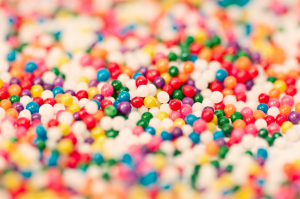17 Jul Should I Let My Child Chew Gum?
 Gum chewing has been around for thousands of years. In fact, scientists have found an ancient wad of gum in Sweden that is 9000 years old. Over half a billion dollars is spent per year on bubble gum in North America and the average American chews 300 pieces of gum a year.
Gum chewing has been around for thousands of years. In fact, scientists have found an ancient wad of gum in Sweden that is 9000 years old. Over half a billion dollars is spent per year on bubble gum in North America and the average American chews 300 pieces of gum a year.
Many parents wonder if they should allow their child to chew gum. Parents also worry what will happen if their child swallows the gum. Gum chewing does have several health benefits but parents should also be aware of the health risks involved in chewing gum.
Health Benefits of Gum Chewing:
Fresh Breath
Fresh breath helps boost confidence.
Helps Control the Appetite
A study published in 2011 found that chewing gum for at least 45 minutes, or 15 minutes per hour for three hours, reduced the volume of snack food consumption, appetite and snack cravings — and promoted fullness.
Cavity Protection
Chewing sugar-free gum after meals helps stimulates saliva production, which is beneficial for cavity protection.
Positive Effect on Mental Health
A 2011 study showed that gum chewing two times daily helped reduce fatigue, anxiety, depression, and mental confusion. Other studies have shown that gum chewing boost mental performance and cognitive function by increasing blood flow to the brain.
Reduces Acid Reflux and Heartburn
Chewing gum after meals causes increased saliva production and increased swallowing which helps clear acid in the esophagus more quickly.
Help the Intestines Recover Faster After Surgery
Studies show that patients who chewed gum after having abdominal surgery took less time to start passing gas and to have a bowel movement because chewing gum is a way to trick the body into thinking you are eating. This stimulates the digestive system as well as saliva production and releases gastrointestinal hormones.
Risk of Gum Chewing:
Blockage of the Digestive System
The stomach cannot break down swallowed gum like it breaks down food. However, the digestive system will move the swallowed gum along and it will be passed out in the stool. Swallowing large amounts of gum or a small amount over time can in rare cases lead to an intestinal blockage. Young kids are at higher risk because they may not understand that they should only chew but not swallow the gum. The American Academy of Pediatrics recommends that gum not be given to children who are too young to understand that they should not swallow it. If your child hold can hold toothpaste their mouth and then spit it into the sink, then they may be ready to chew gum without running the risk of swallowing it
Causes Cavities and Weight Gain
Bubble Gum is mostly made of sugar, which increases the risk of cavities as well as weight gain.
Many sugar-free gums contain an artificial sweetener called sorbitol. Sorbitol affects people differently but too much sorbitol has been shown to cause diarrhea, gas, and abdominal cramping.
Take Home Message:
If your child is developmentally ready, then allow them to chew sugar-free gum. Avoid having more than 2 pieces a day. After they are done chewing, be sure they understand not to swallow the gum but to throw it away instead.
If you would like more information about gastrointestinal (GI) digestive disorders and nutrition in children, please contact Dr. Mona Dave's Frisco Office or Request Appointment Here.